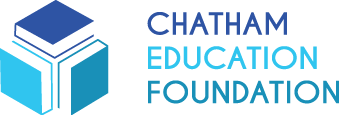
Even if you’ve never bought a lottery ticket in North Carolina, you’ve certainly seen the ads on television and at every single gas station for the North Carolina Education Lottery (NCEL). It’s impossible to miss!
But what may be easier to overlook is just how little the lottery actually contributes to the state’s education budget. According to a recent article by Ben Humphries in EdNC, while NCEL added more than $1 billion to the state’s education budget in 2024, that amount only makes up a small percentage of total state education spending. Humphries wrote, “Of the $12.3 billion total public school K-12 funding in fiscal year 2023-24—a figure which excludes school construction spending—only $407 million or 3.3% came from lottery funds.”
There are also some concerns over the history of the lottery. When the lottery legislation was first introduced, it was written as a supplement rather than a substitute to existing state funding. However, right before the vote, this passage was removed, opening the door for the legislature to use lottery revenues as a replacement for state funding.
In addition, when the lottery was created in 2005, it required that 35 percent of lottery proceeds go to education. But in 2007, the legislature changed this from a requirement to a guideline. Consequently, in recent years, the percentage of lottery revenue allocated to education spending has decreased. In 2023, the percentage dropped to 23 percent and, in 2024, the percentage dropped to 20.3 percent.
Besides the 35 percent that’s supposed to go to education, originally 50 percent was to be used for prizes returned to the public; 8 percent for lottery expenses, including a 1 percent maximum for advertising; and 7 percent compensation for game retailers. But here are the actual percentages for 2023-24: 20.3 percent to education, 70.6 percent to prizes, 5.3 percent to retailers, and 3.8 percent to lottery expenses.

Because lottery funding is used as a replacement rather than a supplement to state spending on education, it is difficult to know what impacts it could have had. The overall amount of money that the lottery contributes to education in North Carolina is small compared to what is actually needed. In the 2022-23 school year, for example, North Carolina spent $17.3 million on instructional expenses which came from three sources: state, federal, and local. According to the Public School Forum of North Carolina, state funding made up 61 percent of the budget, federal funding was 17 percent, and local funding was 22 percent. That same school year, local governments also paid 98.7 percent of capital expenses. In theory, local governments should not have to pay for personnel expenses; however, as has been the case with the NCEL, the state, over time, continues to spend a smaller percentage of its general fund on K-12 public education—from 52.3 percent in 1970 to 38.9 percent in 2022-23.
Here in Chatham County, we’re fortunate to have a Board of Education and Board of Commissioners who agreed to bridge the gap in teacher pay, but it is not an easy feat when North Carolina ranks 48th in per pupil funding, last in funding effort, 38th in average teacher pay, and 42nd in average teacher starting salary.
While our county is doing our part to ensure we can attract and retain highly qualified teachers, we cannot be expected to foot the bill indefinitely. It is the state’s responsibility to fully fund a quality education for every child in our state, with or without the lottery. The Chatham Education Foundation partners with students, parents, and community members to advocate for full funding for our schools at every level. To get involved, email us at contact@cefmail.org.
